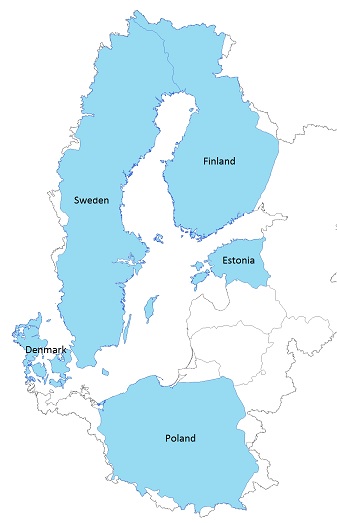Coherent policies and governance of the Baltic Sea ecosystems

Eutrophication is one of the most important environmental problems of the Baltic Sea. HELCOM has set ambitious targets for nutrient reductions to the Baltic Sea by the Baltic Sea Action Plan (BSAP).
The ultimate impact of efforts to reduce the eutrophication of the Baltic Sea is tightly linked to design and stringency of agricultural and climate policies. Coherence between these policy areas is therefore necessary, as improved synergies would most likely increase efficiency of them all.
The aims of Go4Baltic are to:
- analyse how good ecological status of the Baltic Sea can be implemented cost-effectively throughout the Baltic Sea region,
- analyse existing policies and how they have stimulated technological innovation and development to reduce nutrient losses from agriculture
- analyse how future agricultural and climate policy developments influence nutrient load reductions to the Baltic Sea, and
- analyse how farmers adapt to the current and future policies in different parts of the Baltic Sea region.
The Go4Baltic project has 6 partners in 5 countries around the Baltic Sea; Poland, Estonia, Finland, Sweden and Denmark (see map).